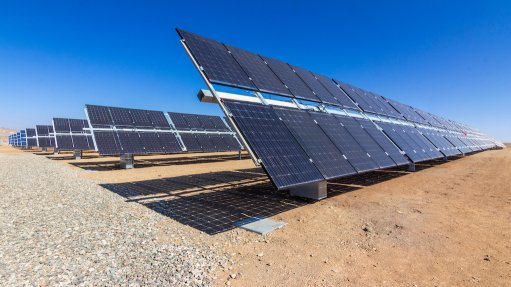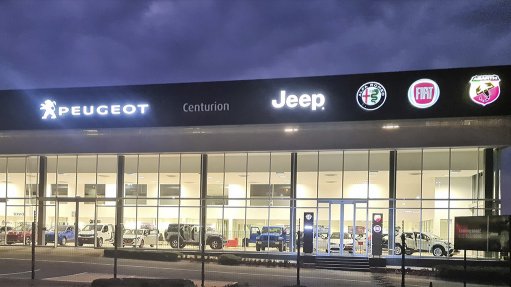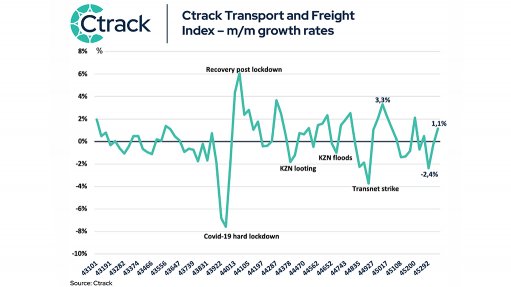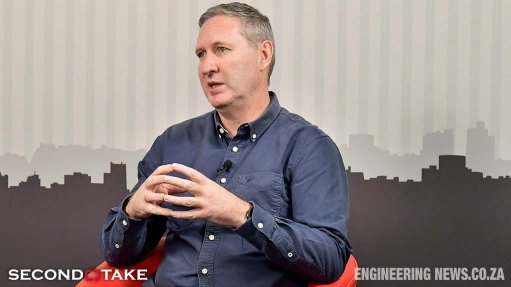Without rooftop solar investments, loadshedding would be worse, study shows
Amid the energy challenges facing South Africa, residential solar energy company GoSolr says radical steps must be taken to secure the country’s energy supply and notes that solar energy will have a key role to play in ensuring security of supply.
In its inaugural quarterly solar update, or Light Paper, the company points out that South Africa experienced 68 days of loadshedding in the first quarter of this year.
It adds that the degradation of State-owned Eskom’s coal fleet, owing to lack of maintenance and investment, has led to the yearly average energy availability factor declining from 94% in 2002, to below 55% in 2023.
The paper indicates that, without rooftop solar alleviating demand on the national grid, the energy shortfall in 2023 would have been 44% worse than it was.
Hence, the company argues that the global shift towards renewable energy presents an opportunity for South Africa to harness solar energy and, subsequently, put an end to the energy crisis.
The report notes that private households have made a significant contribution in driving solar power adoption in the country, citing data from the South African Photovoltaic Industry Association that households alone have likely installed around 620 MW of solar to date.
GoSolr explains that, according to Eskom, as of March, about 5 440 MW of residential and rooftop solar has been installed across the country. Rooftop solar increased by 2 630 MW in 2023, and a further 236 MW has been added in the first quarter of this year.
“We're very positive that this private generation will end this crisis and hopefully quite soon because we need to move past this, and we also need to stop thinking of rooftop solar as a loadshedding backup,” said GoSolr co-founder and CEO Andrew Middleton during a media roundtable on April 25.
The company argues, however, that the local industry faces the challenges of inconsistent national policy, regulations and costs.
It notes that several key players driving policy – namely the National Energy Regulator of South Africa, government, Eskom, and the 257 metropolitan, district and local municipalities – as well as inconsistent regulatory frameworks, have resulted in a “patchwork” policy problem, while energy tariffs and electricity prices continue to rise.
Middleton argued that a national framework should, therefore, provide clarity on the implications of adopting solar technology, as well as ensure that installations are compliant.
Hence, the paper posits that immediate measures must be taken to support a more robust and decentralised energy grid, reduce dependency on centralised power sources, and mitigate the impact of loadshedding.
Middleton also noted that a lack of feed-in contributed to around 40% lost solar production last year.
“Rather than implementing household tax incentives that further burden the fiscus, we need progressive solutions that encourage broad adoption.
“We need tax deductions reinstated for solar purchases - inclusive of bought, rent-to-own, or subscription-based. Government must implement a national feed-in tariff framework and regulators must reduce ‘red tape’ for small-scale-embedded generation applications,” the report says.
Despite challenges, he explained that GoSolr has added more than 70 MW of solar energy to the grid over the past two years, adding that the company aims to eventually expand that to 500 MW of rooftop solar in South Africa.
“We see these obstacles as opportunities, we see these crises as a real positive for change.
“Although the last couple of years have been very difficult with power outages . . . we are transitioning much faster than I think we would have without it into an energy source that is affordable, reliable, and sustainable. So, I think we are going to come through this in a much better position as a country,” said Middleton.
Comments
Press Office
Announcements
What's On
Subscribe to improve your user experience...
Option 1 (equivalent of R125 a month):
Receive a weekly copy of Creamer Media's Engineering News & Mining Weekly magazine
(print copy for those in South Africa and e-magazine for those outside of South Africa)
Receive daily email newsletters
Access to full search results
Access archive of magazine back copies
Access to Projects in Progress
Access to ONE Research Report of your choice in PDF format
Option 2 (equivalent of R375 a month):
All benefits from Option 1
PLUS
Access to Creamer Media's Research Channel Africa for ALL Research Reports, in PDF format, on various industrial and mining sectors
including Electricity; Water; Energy Transition; Hydrogen; Roads, Rail and Ports; Coal; Gold; Platinum; Battery Metals; etc.
Already a subscriber?
Forgotten your password?
Receive weekly copy of Creamer Media's Engineering News & Mining Weekly magazine (print copy for those in South Africa and e-magazine for those outside of South Africa)
➕
Recieve daily email newsletters
➕
Access to full search results
➕
Access archive of magazine back copies
➕
Access to Projects in Progress
➕
Access to ONE Research Report of your choice in PDF format
RESEARCH CHANNEL AFRICA
R4500 (equivalent of R375 a month)
SUBSCRIBEAll benefits from Option 1
➕
Access to Creamer Media's Research Channel Africa for ALL Research Reports on various industrial and mining sectors, in PDF format, including on:
Electricity
➕
Water
➕
Energy Transition
➕
Hydrogen
➕
Roads, Rail and Ports
➕
Coal
➕
Gold
➕
Platinum
➕
Battery Metals
➕
etc.
Receive all benefits from Option 1 or Option 2 delivered to numerous people at your company
➕
Multiple User names and Passwords for simultaneous log-ins
➕
Intranet integration access to all in your organisation





















